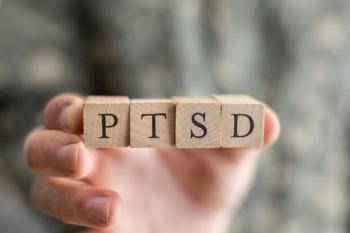
- Vol 30 No 6
- Volume 30
- Issue 6
Cultural Psychiatry and the 'No-Chicken' Doctor
This psychiatrist has learned to ask if his Hmong patients have also consulted a shaman to help with their depressive symptoms and with their PTSD.
I see 2 groups of
I see another group of veteran patients at the psychiatric clinic at Sheboygan County Health and Human Services in Sheboygan, Wisconsin. These veterans are Hmong. Many of them served as soldiers in General Vang Pao’s Secret Army, which was subsidized by the CIA. They mostly fought along the Ho Chi Minh trail and focused on disrupting supply lines, rescuing downed US airmen, and battling in ways that put them in great danger-often to save American lives.
These Hmong soldiers are not eligible for services at the VA clinic. They fought, bled red blood, and died alongside American soldiers-but they cannot receive medical care alongside American soldiers.
From US soldiers at the VA clinic, I hear amazing stories-being on a minesweeper in Tokyo Harbor, being rescued from a concentration camp in Europe, or boiling soup in a helmet on the Korean peninsula. They recount what it was like to be in Vietnam and to return home full of confusion about what it meant to be drafted into the cultural morass of a dispirited military. The families of my patients at the VA clinic have lived with the aftermath of the war, as their loved ones have tried to keep their lives moving forward, but the families of these soldiers were not in the war.
The families of Hmong veterans that I see were in the war, and in the refugee camps in Thailand. From these veterans, I hear of fighting in the jungle under incredibly stressful conditions, and seeing many of their fellow soldiers die. From their families, I hear of trying to live and raise crops and take care of their children while war was raging all around them. They talk of fleeing through the jungle with their children, holding their hands over the mouths of their children to prevent sound, and swimming through rivers to reach Thailand. One woman told me that her soul is still in Laos, with the souls of her children that died there. The souls of these Hmong veterans-combatants and families-run deep into the war.
Many of the Hmong patients practice shamanism.
In traditional Hmong practices, one does not separate the physical well-being of a person from their spiritual health; the spiritual realm is highly influential, and dictates what happens in the physical world. According to these beliefs, everything possesses a spirit, both animate and inanimate objects. There is a delicate balance between these worlds.1
I see most of my Hmong patients with a translator. It is slow work-questions and repeat questions are asked to try to understand how my Hmong patients see the world, what it means when I suggest a certain course of treatment, and their understanding of medications. They always dress nicely, often in beautifully embroidered clothing, in brilliant colors. They are very deferential. The women, in particular, rarely look at me, except sometimes out of the corner of their eyes. I have discovered that they won’t ask all their questions unless I directly ask them if they have questions; then, permission given, a flood of questions come forth.
My friend Tao Lee is a nurse practitioner at the VA clinic. I asked him what his Hmong parents thought about his becoming a practitioner of Western medicine. They weren’t happy, he said. They are both shamans, but (he quickly added) “retired.” You become a shaman when you are recognized by the community as having healing powers. I asked if Tao’s parents might come and talk to our medical staff; he declined. That would be difficult. They would not feel it was right.
I have learned that I should ask if my Hmong patients have also consulted a shaman to help with their depressive symptoms and with their
“She came to see you first,” he said, “because she would have had to bring a chicken to see the shaman.”
Practicing in the county community mental health clinic, I was free.
I was now the “No-Chicken Doctor.”
As one of my favorite sailing authors wrote (in a different context), “Good work, if you can get it.”
Articles in this issue
over 12 years ago
The Family Guide to Mental Health Careover 12 years ago
“PRN” Medication for Alcohol Dependence May Reduce Harmover 12 years ago
No Mortality Increase With Antipsychotics in Prospective Studyover 12 years ago
Epidemiology and Treatment of Substance Use and Abuse in Adolescentsover 12 years ago
Bias Against Schizophrenic Patients Seeking Medical Careover 12 years ago
Pain and Suicideover 12 years ago
Shared Risk Factors in Multiple Psychiatric Disordersover 12 years ago
Genetics and Pharmacogenetics of Schizophrenia: Recent ProgressNewsletter
Receive trusted psychiatric news, expert analysis, and clinical insights — subscribe today to support your practice and your patients.






